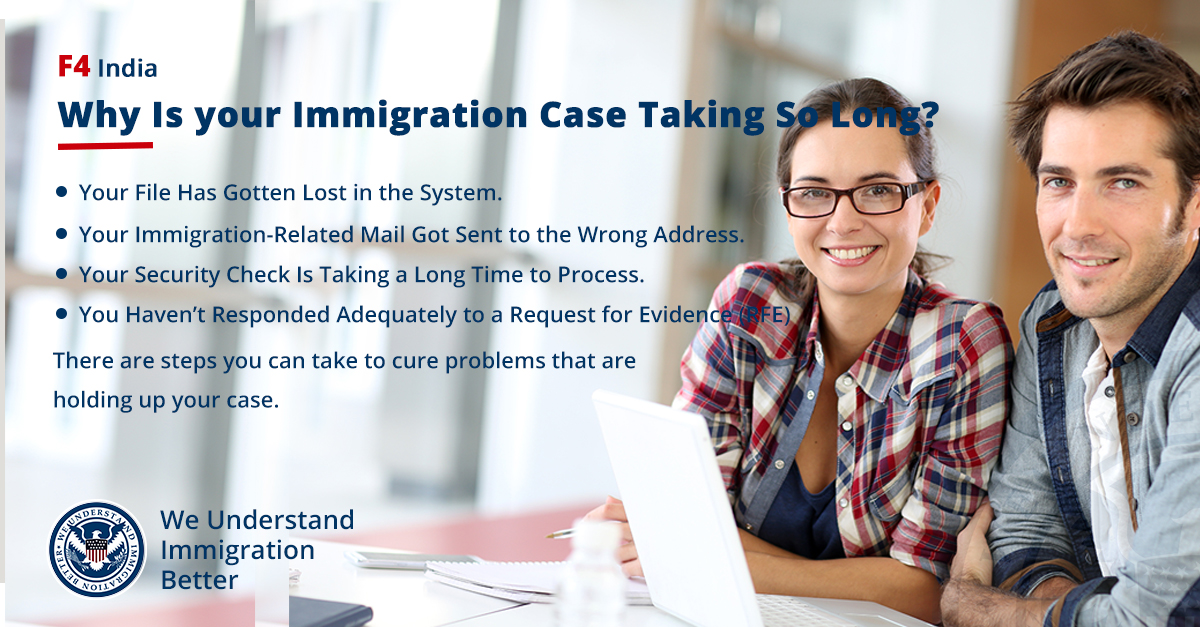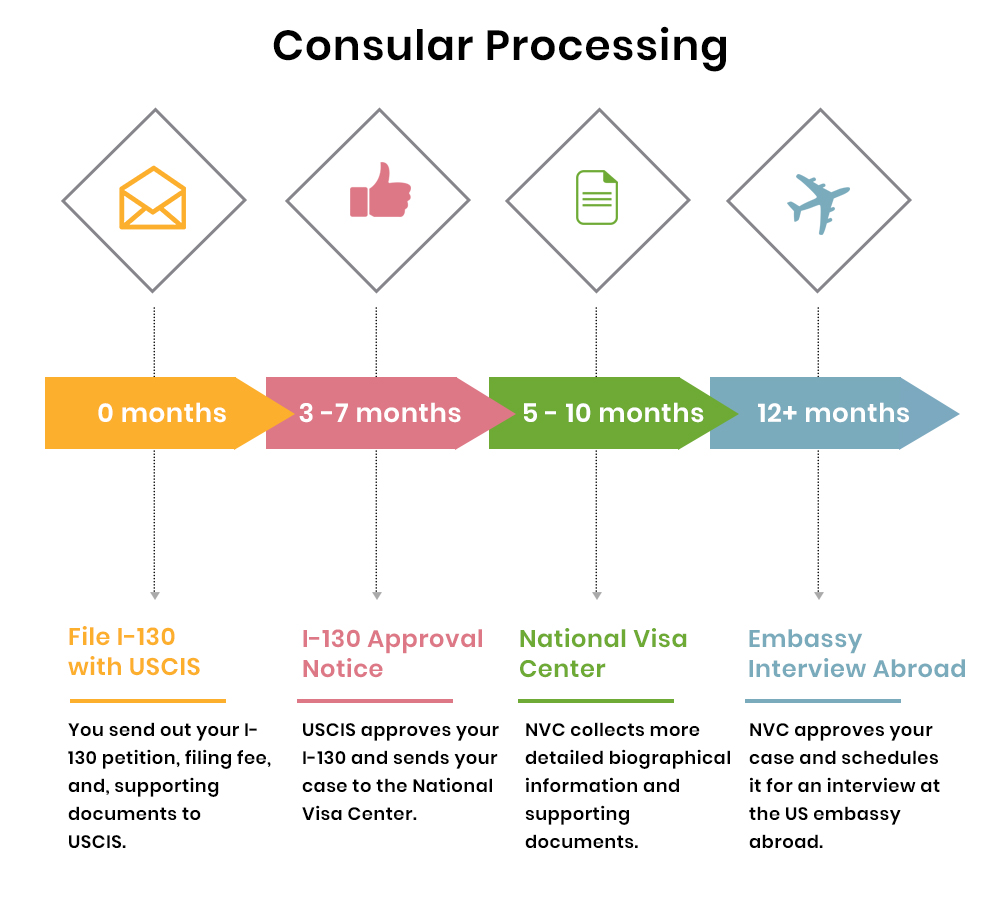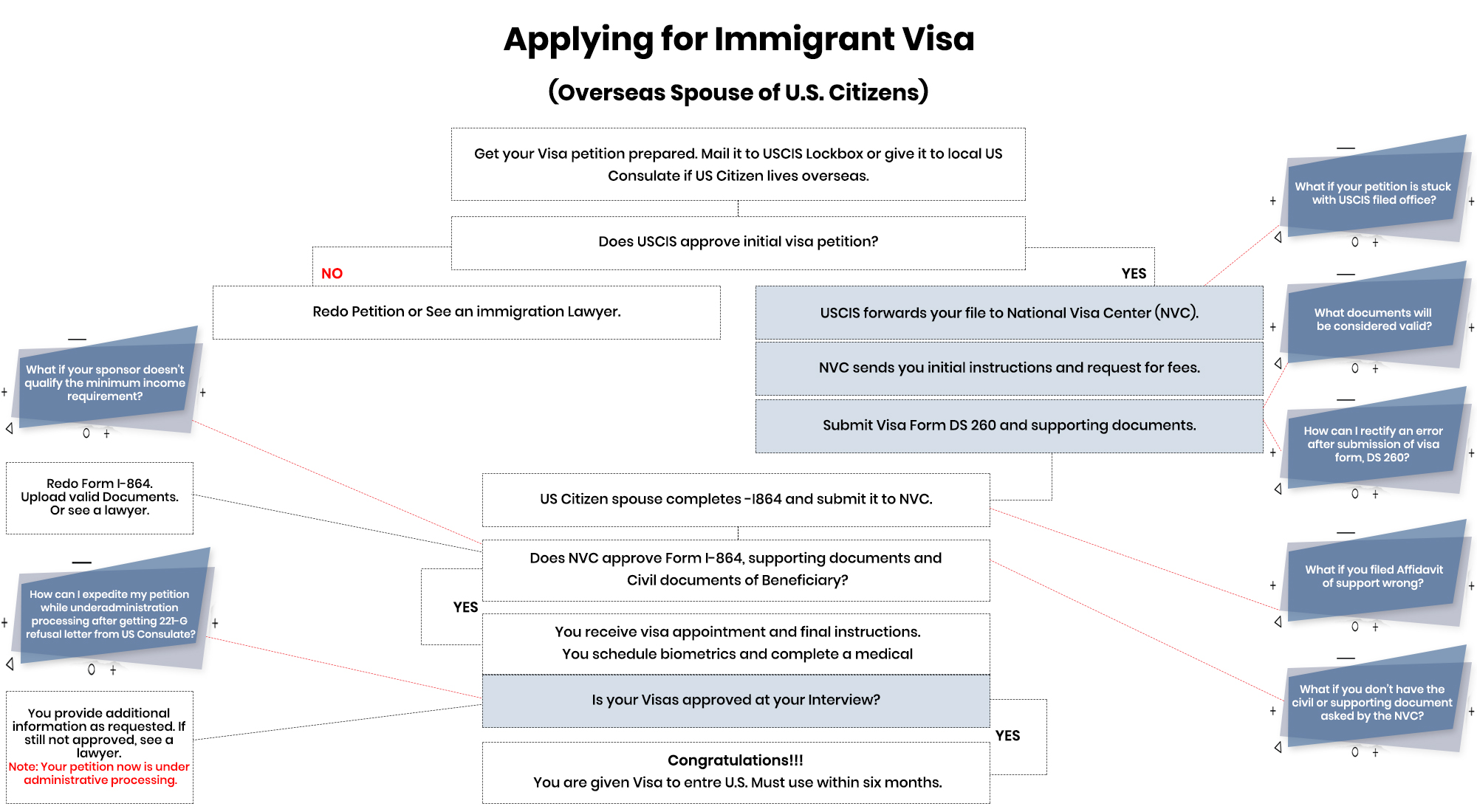Green Card through Consular Processing

Green Card through Consular Processing
"Green Card through Consular Processing" refers to the process by which individuals who are outside the United States can obtain a U.S. Green Card, which grants them lawful permanent residency. This process is typically pursued by those who qualify for immigrant visas based on family relationships or employment opportunities.
Consular Processing Procedure:
Step 1: File a Petition
The United States Citizens and lawful permanent resident petitioners living in the U.S. must file Form I-130, Petition for Alien Relative, with the USCIS (The United States Citizenship and Immigration Services). Our Firm file the petitions electronically or through the traditional paper process (through the mail) on the behalf of our clients and corporates. We have an experienced and result oriented team for filling all types of family-based petitions and employee-based petitions.
To learn more about how to access forms and eligibility test, please click here.
Filing Petitions from Inside the United States
U.S. Citizens and LPR sponsors living in the U.S must file Form I-130, Petition for Alien Relative, U.S. employers must file Form I-140, Petition for Alien Worker with the USCIS Chicago Lockbox facility. Our Attorneys are best in the world for filling all types of petitions.
Filing Petitions from Outside the United States
Most immigrant visa petitions are filed inside the U.S, filling certain types of petitions outside the U.S is possible. Petitioners those who are residing outside of the United States can file Form I-130, Petition for Alien Relative, online or by mail to the USCIS Dallas Lockbox. Our F4 India Team has filed thousand petitions successfully.
Approval
Your immigrant petition must be approved by the United States Citizenship and Immigration Services (USCIS) before your case can proceed to the National Visa Center (NVC).

Pros And Cons of Consular Processing
Deciding whether to opt for consular processing is a significant choice. If you are currently in the United States, an alternative is applying for an adjustment of status. A thorough discussion among you, your family, and your lawyer is crucial in making an informed decision. To aid your consideration, here are the common advantages and disadvantages associated with consular processing..
Advantages
Consular processing is notably faster, typically taking 5 to 13 months on average. In contrast, the United States Citizenship and Immigration Services (USCIS) may take one to two years to decide on an Adjustment of Status petition.
There's a sense of certainty and comfort in consular processing. Intended immigrants are aware of when and where the interview will take place. Consular officers are likely more attuned to local customs than USCIS officers, potentially reducing challenges in explaining technicalities or presenting specific documentation.
The fees for consular processing are considerably lower. With a $1,140 fee for adult petitioners, an Adjustment of Status application is over double the price of consular application fees, which amount to $345, depending on the underlying petition type.
Disadvantages
Consular processing interviews are mandatory and cannot be waived. Attorneys cannot accompany you during the interview.
Decisions made by consular officers are not subject to challenge. This lack of reviewability creates the potential for re-adjudication or outright revocation of an initially approved immigrant visa petition. Intended immigrants undergoing consular processing may also have limited access to consular officials compared to Adjustment of Status applicants dealing with USCIS officials.
Depending on the intended immigrant's residence, they may face dangerous conditions or additional travel-related costs when journeying from their home to a U.S. consulate.
In making this decision, careful consideration of these factors, along with professional advice, will help guide you towards the most suitable path for your situation.
Aging Out in Consular Processing
"Aging Out" refers to the potentially challenging situation involving a child approaching the age of twenty-one while applying for an Adjustment of Status (AOS) or an immigrant visa through consular processing. This situation is crucial and sensitive for several reasons.
Who's a Child, and Why Does It Matter?
According to federal law related to immigration, a "child" is defined as an unmarried person under the age of twenty-one. In various scenarios, immigrant children qualify for immigration benefits for reasons other than simply being the children of U.S. citizens or permanent residents. This eligibility extends to being beneficiaries of immigrant petitions, whether family-based or employment-based.
In the past, if a child reached the age of twenty-one while their Adjustment of Status application or application for immigrant visas through consular processing was still pending, the child would lose eligibility for a green card based on being a child beneficiary. When a child turned twenty-one before their application was processed, they were said to have "aged out." Aging out meant the child was no longer qualified for many immigration benefits they were eligible for before turning twenty-one years old.
This situation is particularly significant because it can lead to the loss of opportunities for immigration benefits that the child would have otherwise been entitled to. It underscores the need for timely processing of applications to ensure that the child's age does not exceed the eligibility threshold during the adjudication period. Recent changes in immigration policies aim to address this issue and provide relief for individuals who might age out during the process, but it remains a crucial consideration in consular processing scenarios.
Green Card Application Process |
|
|---|---|
Consular Processing |
Adjustment of Status |
|
If you are living outside the united states, you have to file at U.S. Consulate abroad. This process is called as Consular Processing. |
If you are already living in the united states, you can file for permanent resident status or Green Card from inside United states. You don’t have to go back your home country for completing the Green Card Processes & Procedures. You can obtain your permanent resident status through Adjustment of Status. |
| CONSULAR PROCESSING | ADJUSTMENT OF STATUS |
|---|---|

Consular Processing: Department of State |

Adjustment of Status: USCIS |
| Accessing Authority: Under the process of consular processing, the U.S. Department of State is responsible for your immigrant visa application. | Accessing Authority: Under this process your application will go to U.S. Citizenship and Immigration Services (USCIS). |
| Time: For immediate relative processing time under Consular Processing takes 5 to 12 months. | Time: For an Immediate relative Processing time for Adjustment of Status usually takes 10 to 18 months. |
| Travel: Being an applicant for immigrant visa and having a pending immigration petition It may be much more difficult to visit the United States Though it’s possible to get a B1/B2 visa but it shouldn’t be expected. | Travel: While waiting for your I-485 Adjustment of Status application approval from USCIS you may travel outside the U.S. provided you have obtained the correct authorizations. |
| Fees: Consular Processing path for getting a green card is almost always less expensive than the path of Adjustment of Status. | Fees: The set of forms to be filed for a family-based adjustment of status package is generally more extensive than consular processing. |
Consular Processing |
|
|---|---|
FEES FOR USCIS, NVC OR U.S. CONSULATE |
FEE (USD) |
Form I-130, Petition for Alien Relative |
$675 |
Form I-130A, Supplemental Information for Spouse Beneficiary 1 |
$0 |
DS-260, Immigrant Visa Application |
$325 |
Form I-864, Affidavit of Support 3 |
$120 |
Form I-693, Report of Medical Examination and Vaccination Record |
$0 |
USCIS Immigrant Fee |
$220 |
| Total for Typical Adult Applicant | $1,200 |
| Adjustment of Status | |
|---|---|
USCIS FEES |
FEE (USD) |
Form I-130, Petition for Alien Relative |
$535 |
Form I-130A, Supplemental Information for Spouse Beneficiary 1 |
$0 |
Form I-485, Application to Adjust Status 2 |
$1,440 |
Form I-864, Affidavit of Support |
$0 |
Form I-693, Report of Medical Examination and Vaccination Record |
$0 |
Form I-765, Application for Employment Authorization 4 |
$0 |
Form I-131, Application for Travel Document 4 |
$0 |
Biometrics (applicants ages 14-78) |
$85 |
| Total for Typical Adult Applicant | $1,760 |
Consular Processing Services We Provide
F4 India is Here to Help
Applying for an immigrant visa through counsular processing can be a complex process for many people. This is why we recommend you seek the advice of an experienced immigration attorney regarding your situation. At F4 India our attorneys have decades of experience successfully facilitating consular processing for our foreign-based clients. Our associates worked for several years as a consular officer at multiple U.S. diplomatic posts worldwide. Click here to contact our firm for Online Consultation. For the latest updates and official news on consular processing, Click here.
Why You Need an Immigration Attorney to Help You Prepare The I-485 Application
To avoid running into unnecessary trouble, it is a good idea to hire an immigration attorney when applying for your Adjustment of Status. Keep in mind that, each year, USCIS rejects or denies thousands of I-485 applications.
An Attorney will do the Following Tasks in Order to Make Your Case Stronger for Approval.
Just Remember
“A good attorney can be the difference between an approval and a denial and its always better to get it right the first time.”

